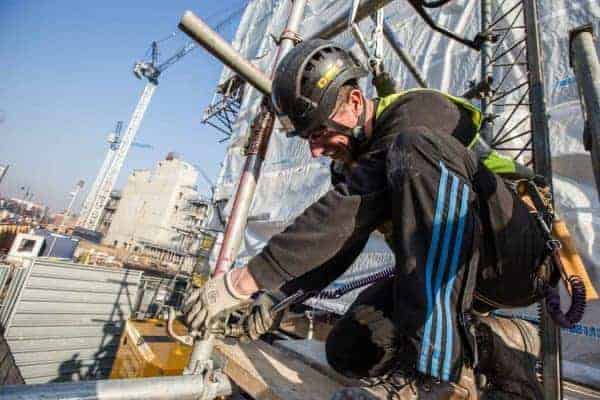Revealing survey shows a changing UK skills base.
A new report from The Federation of Master Builders (FMB) reveals staggering evidence the average salary of a scaffolder is actually higher than a university-trained architect. In fact, plasterers, bricklayers, plumbers and electricians are all taking home more in a year than teachers, veterinarians, nurses, and accountants. And the highest paid bricklayers in the capital are earning around £90,000 annually, such is the demand for construction skills in the UK. The average salary of a scaffolder is £40,942 according to FMB findings, as opposed to £38,228 for an architect.
The research was carried out among FMB members in the week commencing 29th January 2018. Construction companies across the UK were asked what they pay their skilled trades-people and the results, based on responses from 313 firms, showed average annual salaries were as follows:
- Site managers earn £51,266
- Plumbers earn £48,675
- Supervisors earn £48,407
- Electricians earn £47,265
- Civil engineering operatives earn £44,253
- Steel fixers earn £44,174
- Roofers earn £42,303
- Bricklayers earn £42,034
- Carpenters and joiners earn £41,413
- Plasterers earn £41,045
- Scaffolders earn £40,942
- Floorers earn £39,131
- Plant operatives earn £38,409
- Painters and decorators earn £34,587
Bear in mind general construction operatives earn £32,392, with nurses earning just under 32k, teachers 38k and dentists 40k.
FMB chief executive Brian Berry says: “The average university graduate in England earns £32,000 a year whereas our latest research shows your average bricky or roofer is earning £42,000 a year across the UK. In London, a bricklayer is commanding wages of up to £90,000 a year.”
Pursuing a career in construction is becoming an increasingly savvy move. University students in England will graduate with an average £50,800 of debt, according to The Institute for Fiscal Studies, while apprentices pass the finish line completely debt-free. Not only that, apprentices earn while they learn, taking home around £17,000 a year.
FMB is calling on all parents, teachers and young people, who too-often favour academic education, to give a career in construction serious consideration.
Mr Barry said: “The construction industry is in the midst of an acute skills crisis, and we are in dire need of more young people, including women and ethnic minorities, to join us. Our latest research shows more than two-thirds of construction SMEs are struggling to hire bricklayers, and 63 percent are having problems hiring carpenters.”
The FMB used its findings to urge young people to enter the construction industry through paid apprenticeships, rather than working toward a degree and massive debt. The whole exercise points to the current plight of the industry.
Mr Berry added: “This is a stark reminder of how the Government’s housing targets could be scuppered by a lack of skilled workers. The FMB is committed to working with the Government to improve the quality and quantity of apprenticeships because the only way we will build a sustainable skills base is by training more young people, and to a high standard.”
No doubt this revealing report will be some cause for debate amongst industry employees.


